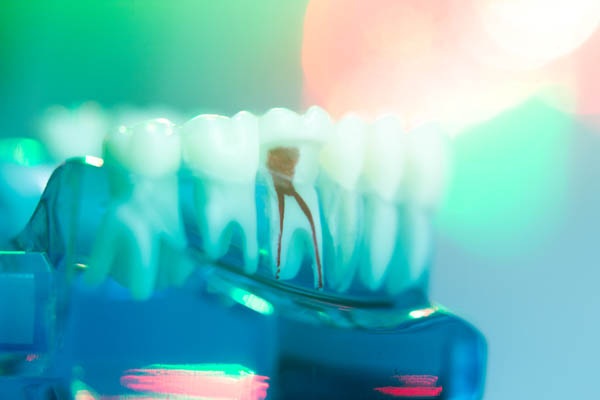Do You Need a Crown After Root Canal Treatment?

Are you preparing yourself for your upcoming root canal treatment? Good idea. When you are ready, the entire root canal process is one that will be much simpler for you. Since one of your teeth is in jeopardy, it is vital for you to take any measures so that you can save the tooth. Keeping your natural teeth for as long as possible is always recommended, as teeth were indeed meant to last you your entire lifetime.
Root canal procedure
When a root canal procedure is performed, an experienced dentist will thoroughly clean out the pulp in the tooth. The pulp contains all of the tooth’s nerves and blood vessels, and when the pulp is jeopardized or infected, it needs to be removed so that it does not cause any further damage to the patient.
Once all of the pulp is removed, the dentist will then disinfect the tooth, so there is no worry about any further damage to the tooth, as well as any further damage to the patient's overall health. The tooth is then filled with a unique dental material that seals the tooth, preventing anything from getting inside.
Crowns
A crown is also known as a cap and is used often when a dental patient is in need of implants or bridges. The reason for a crown is to strengthen a tooth. When a crown is placed over a weak tooth, it can provide the extra strength the tooth needs so that it can continue doing the job it is supposed to do.
If a cap is not used to fix a tooth that is weak, then it is very possible that the tooth will split or break. If this happens, then it will take longer to fix the teeth because more damage has been done.
Crowns after root canal treatment
The general rule of thumb is that a dental crown will need to be placed over a tooth that has just received a root canal if the tooth is a premolar, a molar or one of the back grinding teeth. These teeth need to be kept strong as they are used continuously when eating throughout the day. If the tooth had previous damage or is now a lot weaker because all of the pulp has been removed, then a dentist will often put a cap over it to keep it strong so that no further damage is done.
If a dentist believes that a tooth is in need of a crown after performing a root canal, then a crown should be placed on the tooth. It is essential for all teeth to be as healthy as they can be so they can function correctly.
Can we answer your root canal or crown questions?
If you have any questions about your upcoming root canal treatment, please do not hesitate to call us.
Call (608) 713-9418 today to reach 608 Family Dental.
Check out what others are saying about our dental services on Yelp: Root Canal Treatment in Sun Prairie, WI.
Related Posts
A root canal is a common dental procedure designed to save an infected or severely decayed tooth. Despite common misconceptions, it is not a painful or complicated procedure. Rather, it is a routine treatment that effectively relieves pain and protects your natural teeth.A root canal is a treatment used to repair and save a tooth…
The term "root canal" often causes anxiety in patients. This fear is largely due to misconceptions surrounding this dental procedure. However, a root canal is an effective treatment that can relieve pain, save a natural tooth, and prevent further complications. By understanding the most common myths about root canals, patients can approach this treatment with…
Root canal therapy is a dental procedure used to fix teeth with damaged pulp tissues. The term pulp refers to the soft tissues that are contained in the pulp chamber, like nerves and connective tissues. This part of the tooth is sealed off from the rest of it, so bacteria, saliva, and acids in the…
Have you been told by your dentist that you need a root canal? Read on to learn about the importance of getting this treatment in a timely manner. There is no good reason to delay getting a root canal. Still, many people end up doing just that due to reasons like a fear of dentists…
